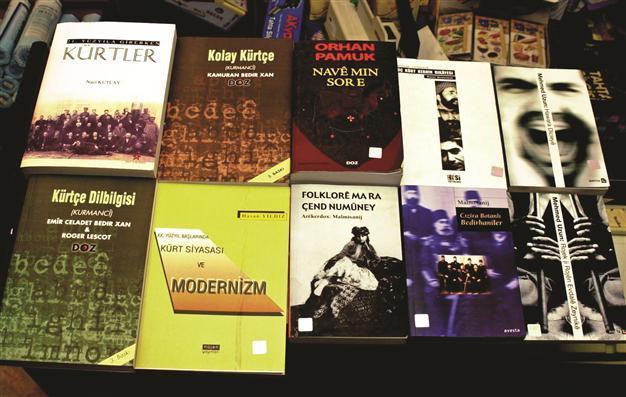Kurdish books still risky business in Turkey, publishers say
ISTANBUL - Hürriyet Daily News

Metin Celal says even the ongoing peace process with the Kurdistan Workers’ Party (PKK) did little to change the way things are in the country when it comes to publishing books in Kurdish.
Kurdish books are still risky business, despite the peace process, according to Turkey’s publishers.Last week, the Turkish Publishers Association (TYB) gave its annual Freedom prize to writer Ahmet Altan, bookstore owner Nuran Sivri and publisher Gökhan Bulut of Aram publishing house, which prints books in Kurdish or focusing on the Kurdish community and history.
“Every year I say ‘we wish that we won’t have to give this prize next year,’ but this year I won’t repeat it, because it is getting darker every year,” TYB chair Metin Celal said about the award which singles out examples of freedom of expression. “There are incredible amount of laws, codes and articles preventing people’s freedom of expression. No matter how much you change them, there is another article forcing bans. Barricades in front of the freedom of expression are becoming more widespread and becoming more natural.”
Celal added that even as they gave out the awards, “Gezi Park resisters faced force and violence,” referring to the nationwide rallies which spread across the country following a protest regarding an Istanbul park renovation. The Gezi Park clashes came amid the resolution process, as the Turkish State sought out a solution to the decades-old conflict relating to the Kurdish issue. However, even though the state was carrying out a dialogue process involving the Kurdistan Workers’ Party (PKK) leaders, the Aram publishing house was still facing lawsuits despite the peace process, Celal said.
“We have paid heavy prices,” Bulut told the Hürriyet Daily News. “Everyone defending the freedom of expression faced pressure, but as the Aram publishing house, we had bigger problems since we focused on Kurdish books.”
Two of the Aram-published books that were subjected to lawsuits were Noam Chomsky’s “Interventions” and Thomas Benedikter’s “The World’s Regional Autonomies.” Bulut said that many of their books were banned apart from lawsuits.
“Even today, defending the Kurdish identity and publishing in the Kurdish language, trying to improve Kurdish literature could cause heavy consequences,” he said.
Other winners of the awards were Ahmet Altan, who has faced many lawsuits for his columns, and Nuran Sivri, owner of the Bebek Türkü Bookstore, which has been operating on the same corner for 41 years.
Lawyer Fikret İlkiz was given the honorary award, which was delivered for the first time this year.
















